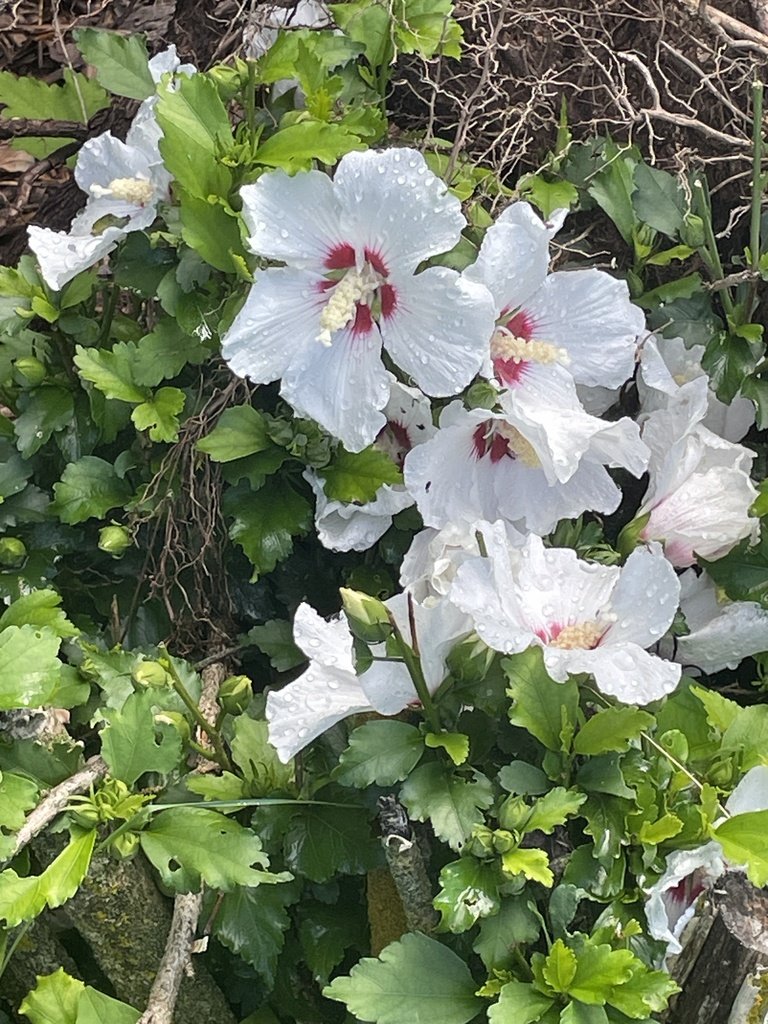Rose of Sharon
1-2’. Rose of Sharon (Hibiscus syriacus) is a hardy deciduous shrub that grows upright and has a vase shape, reaching heights of 2 to 4 meters (7 to 13 feet). It produces large trumpet-shaped flowers with yellow-tipped white stamens. The flowers are typically pink but can also come in dark pink, light pink, or white. Each flower lasts only a day, but many buds on new growth ensure a long summer blooming period. This plant thrives in moist, well-drained, and organically rich soil. Hibiscus syriacus is highly tolerant of air pollution, heat, humidity, poor soil, and drought. It is commonly found in suburban areas and can be slightly invasive due to frequent seeding.
1-2’. Rose of Sharon (Hibiscus syriacus) is a hardy deciduous shrub that grows upright and has a vase shape, reaching heights of 2 to 4 meters (7 to 13 feet). It produces large trumpet-shaped flowers with yellow-tipped white stamens. The flowers are typically pink but can also come in dark pink, light pink, or white. Each flower lasts only a day, but many buds on new growth ensure a long summer blooming period. This plant thrives in moist, well-drained, and organically rich soil. Hibiscus syriacus is highly tolerant of air pollution, heat, humidity, poor soil, and drought. It is commonly found in suburban areas and can be slightly invasive due to frequent seeding.
1-2’. Rose of Sharon (Hibiscus syriacus) is a hardy deciduous shrub that grows upright and has a vase shape, reaching heights of 2 to 4 meters (7 to 13 feet). It produces large trumpet-shaped flowers with yellow-tipped white stamens. The flowers are typically pink but can also come in dark pink, light pink, or white. Each flower lasts only a day, but many buds on new growth ensure a long summer blooming period. This plant thrives in moist, well-drained, and organically rich soil. Hibiscus syriacus is highly tolerant of air pollution, heat, humidity, poor soil, and drought. It is commonly found in suburban areas and can be slightly invasive due to frequent seeding.

